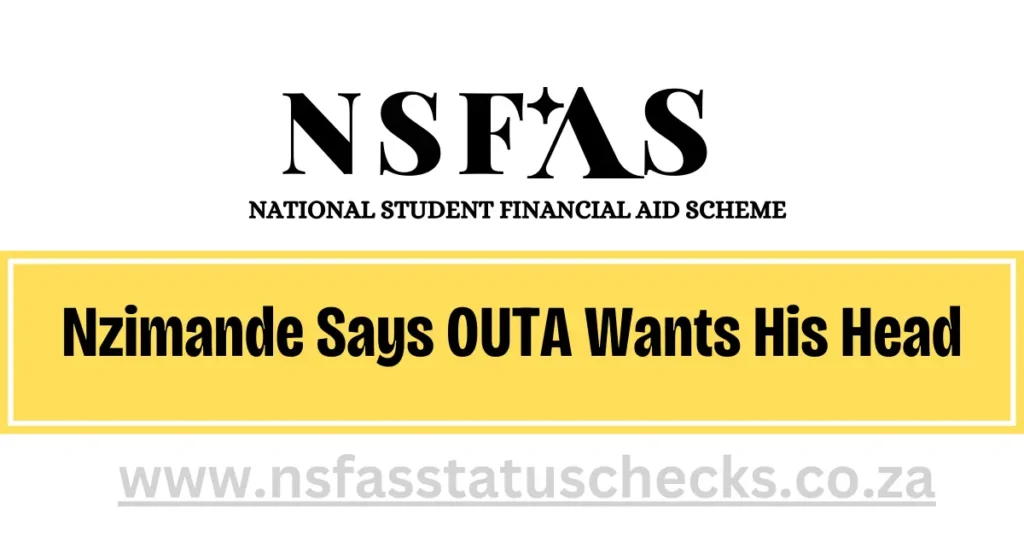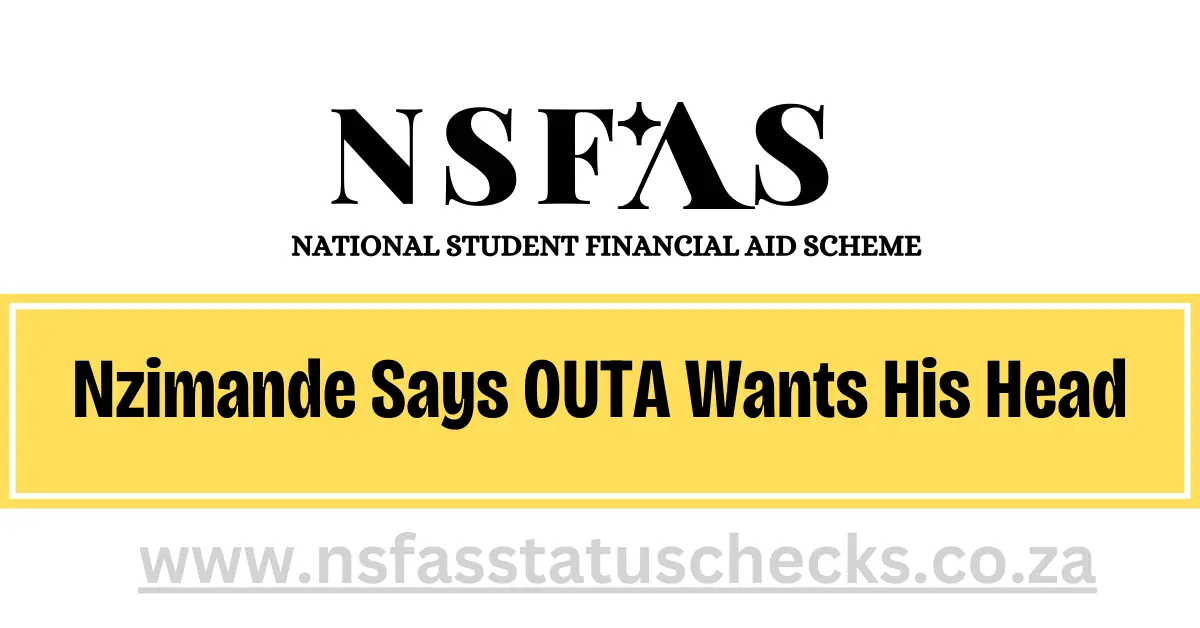In a recent development, Blade Nzimande, the Minister of Higher Education, Science, and Innovation, has come under scrutiny from the Organisation Undoing Tax Abuse (OUTA), which has called for his resignation. This move by OUTA has stirred controversy and raised questions about Nzimande’s leadership and performance in his role.

Who is Nzimande?
South African politician Blade Nzimande serves as the Minister of Higher Education, Science, and Innovation since 2009. He is also the General Secretary of the South African Communist Party (SACP) and a member of the African National Congress (ANC). Nzimande is known for his strong stance on issues related to education and social justice.
What is OUTA?
OUTA, short for Organisation Undoing Tax Abuse, is a non-profit civil action organisation in South Africa that focuses on combating corruption and maladministration in the public and private sectors. It is known for its advocacy work and campaigns against wasteful expenditure and unethical practices.
Context of Nzimande’s statement
The recent statement by Nzimande came in response to OUTA’s call for his resignation, alleging that he has failed to effectively address issues in the higher education sector, including the lack of infrastructure, funding, and support for students. Nzimande has vehemently denied these claims, stating that he remains committed to improving the quality of education and addressing the challenges facing the sector.
Reasons behind OUTA’s stance
OUTA’s call for Nzimande’s resignation stems from a range of concerns, including allegations of mismanagement, corruption, and inefficiency within the higher education sector. The organisation argues that Nzimande has not delivered on his promises and has failed to take decisive action to address these issues, leading to a deterioration in the quality of education and services provided to students.
Nzimande’s response
In response to OUTA’s demands, Nzimande has defended his record, citing various initiatives and reforms that he has implemented during his tenure. He has also accused OUTA of pursuing a political agenda and undermining the progress that has been made in the higher education sector. Nzimande has vowed to continue his work and address the challenges facing the sector head-on.
Impact on Nzimande’s reputation
The controversy surrounding Nzimande’s leadership has raised questions about his credibility and effectiveness as a minister. Some critics argue that Nzimande’s response to OUTA’s demands has been defensive and inadequate, further eroding public confidence in his ability to lead. However, Nzimande still has supporters who believe in his vision and leadership.
OUTA’s objectives and public perception
OUTA’s actions have sparked a debate about its role and objectives, with some questioning the organisation’s motives and political affiliations. While OUTA has been praised for its anti-corruption efforts, critics argue that its approach is sometimes confrontational and lacks transparency. South Africa still needs accountability and good governance, however, and OUTA remains a committed advocate. If you are reapplying for NSFAS funds, please read When to Reapply for NSFAS Funding.
Conclusion
The clash between Blade Nzimande and OUTA highlights the challenges facing South Africa’s higher education sector. While Nzimande has made efforts to improve the sector, there are lingering concerns about his leadership and the effectiveness of his reforms. The outcome of this dispute will have implications for both Nzimande’s political future and the broader education landscape in South Africa.
